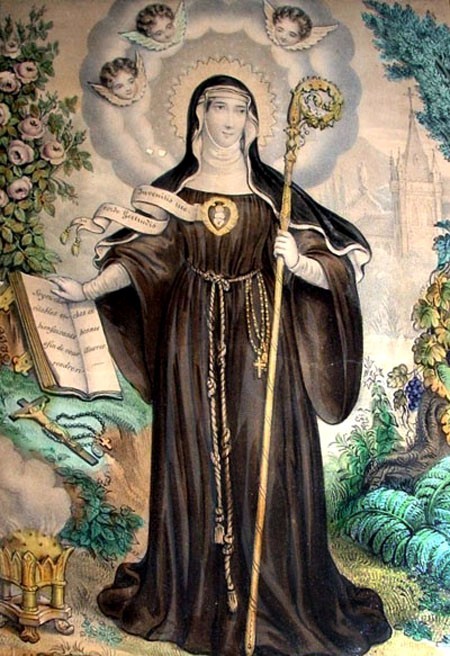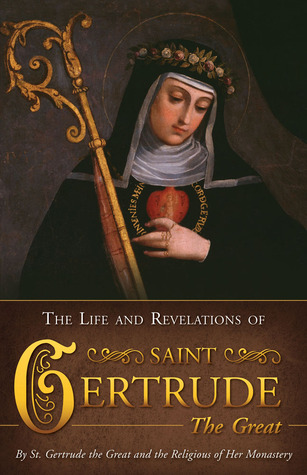Gertrude the Great

Gertrude the Great (or Saint Gertrude of Helfta) (January 6, 1256 – ca. 1302) was a German Benedictine, mystic, and theologian. She is recognized as a saint by the Roman Catholic Church, and is inscribed in the General Roman Calendar, for celebration throughout the Latin Rite on November 16.
Little is known of the early life of Gertrude. Gertrude was born on the feast of the Epiphany, January 6, 1256, in Eisleben, Thuringia (within the Holy Roman Empire). At the age of four,[1] she entered the monastery school at the monastery of St. Mary at Helfta (with much debate having occurred as to whether this monastery is best described as Benedictine or Cistercian),[2] under the direction of its abbess, Gertrude of Hackeborn. It is speculated that she was offered as a child oblate to the Church by devout parents. Given that Gertrude implies in the Herald that her parents were long dead at the time of writing,[3] however, it is also possible that she entered the monastery school as an orphan.
Gertrude was confided to the care of St. Mechtilde, younger sister of the Abbess Gertrude, and joined the monastic community in 1266.[4] It is clear from her own writings that she received a thorough education in a range of subjects. She, and the nun who authored Books 1 and 3-5 of the Herald, are thoroughly familiar with scripture, the Fathers of the Church such as Augustine and Gregory the Great, and also in more contemporary spiritual writers such as Richard and Hugh of St Victor, William of St Thierry, and Bernard of Clairvaux. Moreover, Gertrude's writing demonstrates that she was well-versed in rhetoric, and her Latin is very fluent.[5]
In 1281, at the age of twenty-five, she experienced the first of a series of visions[6] that continued throughout her life, and which changed the course of her life.Her priorities shifted away from secular knowledge and toward the study of Scripture and theology. Gertrude devoted herself strongly to personal prayer and meditation, and began writing spiritual treatises for the benefit of her monastic sisters.[7] Gertrude became one of the great mystics of the 13th century. Together with her friend and teacher St. Mechtild, she practiced a spirituality called "nuptial mysticism," that is, she came to see herself as the bride of Christ.[8]
Gertrude died at Helfta, near Eisleben, Saxony, around 1302. Her feastday is celebrated on November 16, but the exact date of her death is unknown; the November date stems from a confusion with Abbess Gertrude of Hackeborn.

